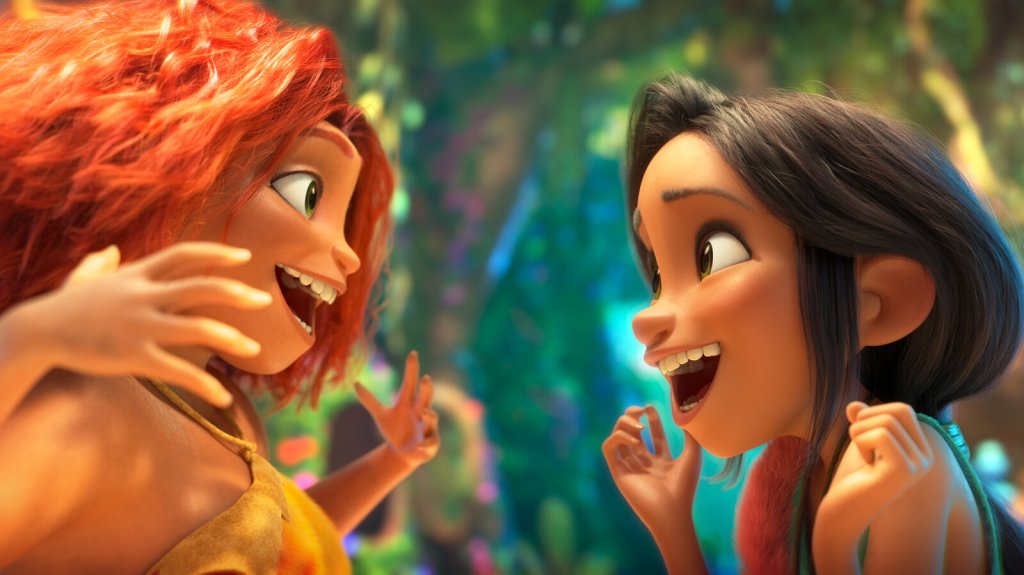What do you do when you you’re reeling from a break-up with no place to stay and no money to make things happen? To grandmother’s house you go, of course. It’s what Russell does. Russell (Thomas Duplessie) has decided to pack up his wigs and fishnets and lick his wounds in the country, at his Grandma Margaret’s place. Grandma (Cloris Leachman) is delighted to have him, not least of all because it’ll help her avoid the local nursing home, which she adamantly and steadfastly refuses to go to despite it being well established that she’s really no longer able to care for herself at home.
Russell has, until recently, pursued acting, but has dropped that passion for another – drag – which may have contributed to his breakup. His mother Ene (Linda Kash) drops in from time to time and hardly seems to know who to be most exasperated with – her stubborn, sickly mother, or her waffling, still-dependent son. Equally inefficient with both, she seems just to pop in to be a bummer and then leave again. Meanwhile, neither housemate is doing well. Russell is stagnant, torn between leaving, which means restarting, which is terrifying not to mention the whole abandoning Grandma thing, or staying, and quietly extinguishing an important part of himself. Grandma, meanwhile, is rapidly declining, but no less unwavering in her resolve to live at home. But this together time means they’re both learning about each other’s lives, their secrets, their dashed hopes, things many grandma-grandson duos may never normally exchange. Their relationship is unconventional but sweet.
Director Phil Connell keeps things simple, allowing the relationship to be the film’s primary focus. Newcomer Duplessie pours his whole self into the role. On the other end of the spectrum, this is Cloris Leachman’s final role. She died in January of this year, a talented lady to the very last, and though she seems as feisty and vibrant as ever, physically the years were taking a toll and it’s hard not to think of her demise while watching her declining mental state in the film. Still, such a meaty, involved role for a woman this late in her life is a rarity (she was 94 when she died), and Leachman was such a gem. This film isn’t her best, but it’s a great way to say goodbye to a legend.
A caveat: although I enjoyed this movie, and I enjoy drag as a whole, I do have one problem with both, and that’s the use of the word ‘fish.’ In drag, ‘fish’ is a compliment. It means the queen is looking particularly feminine, perhaps even passing as female. But fish is a dirty word, a derogatory word. I don’t mind anyone dressing up as a woman or performing as a woman but I do mind the offensive language, and I’m pretty sure you can guess where the term fish comes from. It’s a word that’s been used to shame women about the scent of their sex, as if a natural odor is somehow wrong. As a term it’s been co-opted by the drag community, the very people who apparently admire femininity so much they want to emulate it, but at the same time insult the people they’re imitating. It seems strange to put on heels and wigs and corsets and makeup and then sling sexist terms like this, but the patriarchy is pretty strong and even the marginalized will oppress those beneath them. The word is unnecessary, easily scrubbed. Let’s make that happen.



 docile woman who is pushed to do violence when she finds her man in bed with another woman. This unlikely pair bonds over their mutual sentence, and agree to do each other a solid: she’ll attend his niece’s wedding with him – he owes money to his brother (Danny DeVito) and his sister-in-law (Patti LuPone) never quits breaking his balls – and he’ll attend a birthday dinner for her disapproving father (Harvey Keitel).
docile woman who is pushed to do violence when she finds her man in bed with another woman. This unlikely pair bonds over their mutual sentence, and agree to do each other a solid: she’ll attend his niece’s wedding with him – he owes money to his brother (Danny DeVito) and his sister-in-law (Patti LuPone) never quits breaking his balls – and he’ll attend a birthday dinner for her disapproving father (Harvey Keitel).